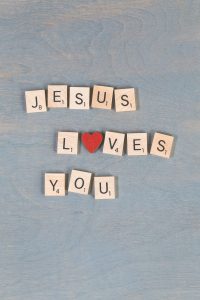by Hannah Nissing
 More than once, I’ve heard the wistful remark: “If only we could all get along, like the animals do!” And on every occasion, I can’t help but chuckle. Having grown up with a variety of animals, I can tell you that the animal kingdom is no peaceful utopia. The term “pecking order” is more than a figure of speech for chickens. You can tell who’s lowest on the totem pole; they’re in the corner, wobbling on skinny legs, shivering against the wind with tufts of feathers missing, left to fend for themselves against any hawks or raccoons that drop by. Just as there is no honor among thieves, there is no mercy among chickens.
More than once, I’ve heard the wistful remark: “If only we could all get along, like the animals do!” And on every occasion, I can’t help but chuckle. Having grown up with a variety of animals, I can tell you that the animal kingdom is no peaceful utopia. The term “pecking order” is more than a figure of speech for chickens. You can tell who’s lowest on the totem pole; they’re in the corner, wobbling on skinny legs, shivering against the wind with tufts of feathers missing, left to fend for themselves against any hawks or raccoons that drop by. Just as there is no honor among thieves, there is no mercy among chickens.
These days, we’re taught that humans are nothing more than highly developed animals. And when we believe that we exist by chance, that we just happened to evolve from a random microscopic organism, we may inevitably conclude that our life—all that we are and do and believe—doesn’t matter. Rather than seeking to understand our purpose in life, we shrug our shoulders and say, “Why not act on my passions? Why not live in the moment? Nothing matters anyway, I might as well have a good time while I’m here.” This selfish, nihilistic point of view strips life of value, leaving it devoid of rhyme and reason.
With this outlook, life becomes a game of “every man for himself” as we relentlessly pursue whatever we think will make us happy. Our neighbor becomes an extraneous player. After all, if our life doesn’t matter, neither does theirs, right? Convenience is the name of the game. Why not let the elderly woman decide when she dies? She’s suffering so much; it’d be kinder to end things. Plus, her family can’t handle the bills. And why not get rid of that tiny baby before he’s born? He wouldn’t have a good life anyway; he’d only be a burden to his mother. Leave the chickens to the raccoons. After all, death is a part of life.
But death isn’t a part of the life for which we were created—for we were created. You didn’t morph from pond scum into an intelligent hairless monkey; you were handcrafted by the Lord of the Universe.
God created humanity to live forever in perfect harmony with Him. And when we messed it up, He didn’t abandon us. He sent Jesus to take our punishment and give us the free gift of salvation, no strings attached. But God doesn’t leave it at that. He doesn’t say, “See ya at the pearly gates!” and go back to the angels’ harp concert. He cares for us in this life, too, providing for our needs and giving us a peace that surpasses all understanding (Philippians 4:7).
Why does He do all this? Because He loves us. He created us in His own image. To make the cosmos, He spoke, and it popped into existence. But our creation was far more intimate. He formed man “from the dust of the ground and breathed into his nostrils the breath of life” (Genesis 2:7). We’re not sophisticated animals. We are the crown of God’s creation, His precious children.
God further draws a line between us and the creatures by making us their caretakers, an authority to be used with good judgment and compassion. Outside of capital punishment (Genesis 9:6), He has given no such authority where human life is concerned; that power rests with Him. Death is not a convenient option to be considered; it’s not our choice to make in the first place. And that’s a good thing! Who better to guard and keep our lives than an all-powerful God who loves us? As long as we have breath in our lungs, He has a purpose for us.
You have intrinsic value. And so does your neighbor, no matter how insignificant he or she may be in the eyes of the world. With this knowledge, our worldview shifts from egocentric to Christocentric. Our neighbor isn’t a nameless background character in the story of our lives; Christ gave His life for that neighbor. We’re called to love our neighbor, not leave him behind in the name of “survival of the fittest.”
Love is our origin story and our mission. We were created by a loving God, redeemed by His self-sacrificial act of love, and called to love one another. God loves us; therefore, our life has value. God calls us to love; therefore, our life has purpose. And this, dear friend, is the greatest purpose.
Hannah Nissing is a member of Bulldogs4Life, the Y4Life team at Concordia, Nebraska.